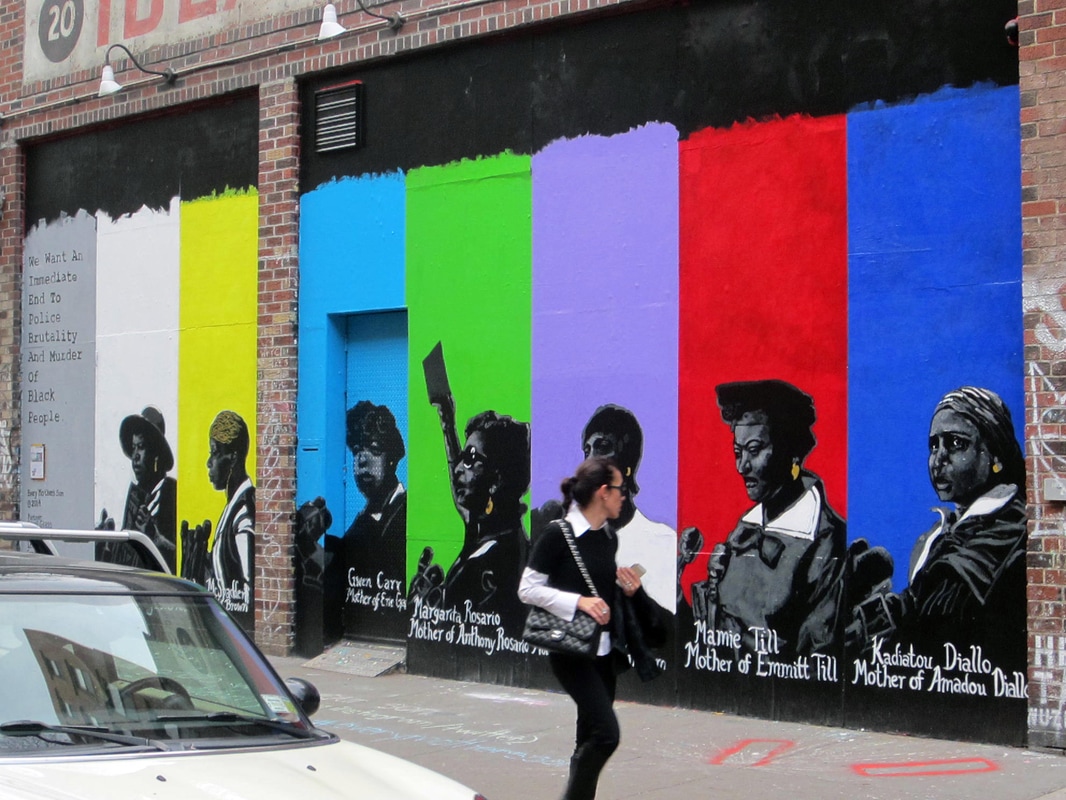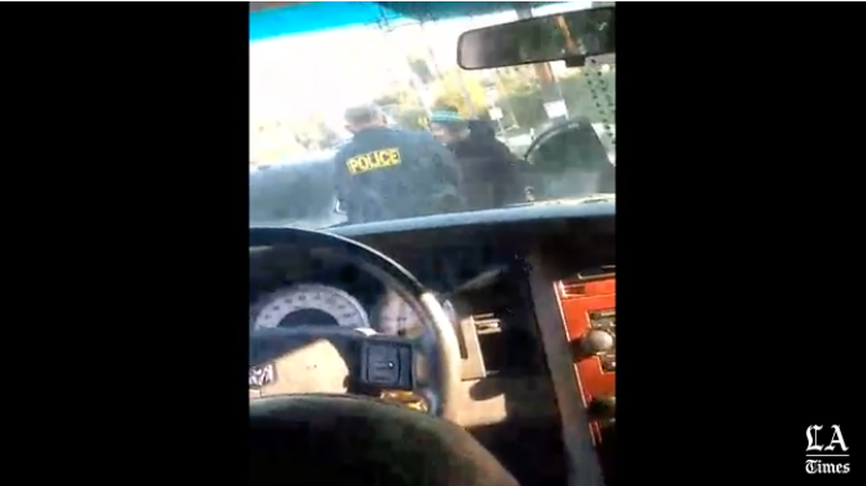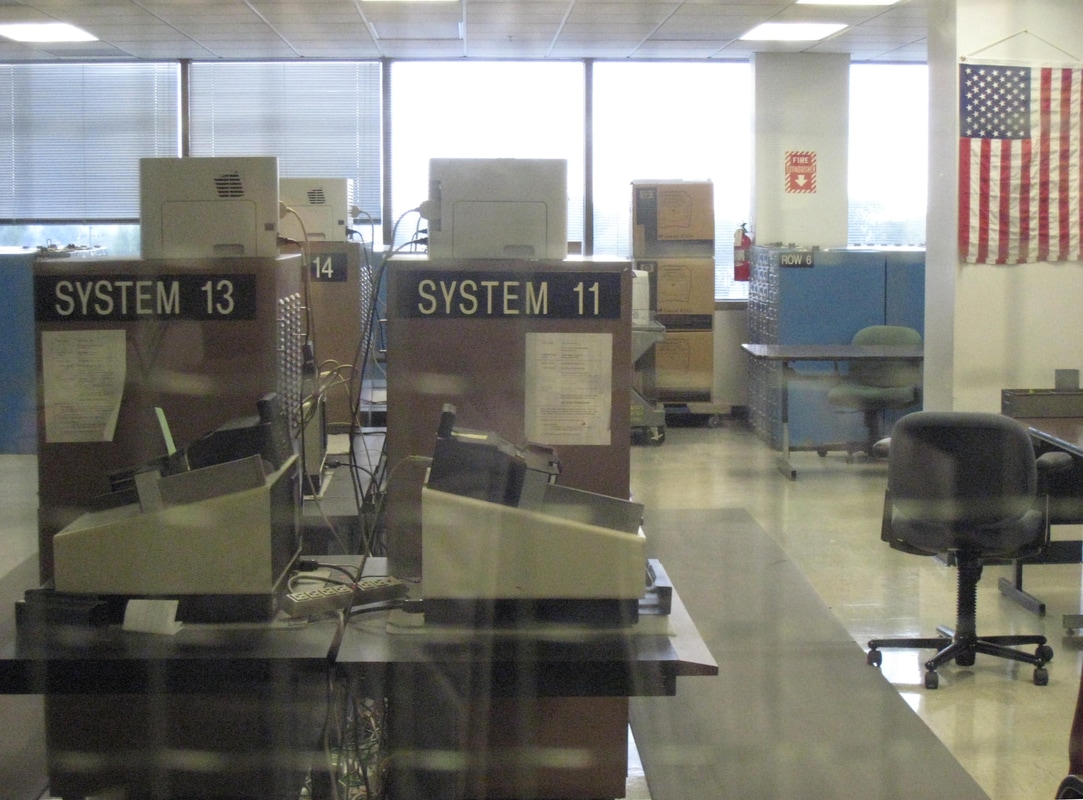My Daily Constitution at Occidental College
Three Constitution Cafés on Thursday evenings
April 20th, 27th, May 4th, 7 - 9 PM
McKinnin Center for Global Affairs at Johnson Hall
April 20th, 27th, May 4th, 7 - 9 PM
McKinnin Center for Global Affairs at Johnson Hall
Thursday May 4th
Can there be Racial Justice under the Constitution?
with
Kaaryn Gustafson
Professor of Law, University of California Irvine, School of Law
Hamid Khan
Organizer, Stop LAPD Spying Coalition
The Fourth Amendment is supposed to protect us against unreasonable searches. The 13th Amendment does away with servitude, but makes an exception for criminal acts, and the 14th Amendment, with the Equal Protection Clause, provides that no state shall deny to any person within its jurisdiction "the equal protection of the laws”.
On a week that marks the 25th anniversary of the LA Uprising, we ask, Can there be racial justice under the Constitution? What happens when so much of daily life of people of color becomes criminalized? How did this happen? What can be done about it?
On a week that marks the 25th anniversary of the LA Uprising, we ask, Can there be racial justice under the Constitution? What happens when so much of daily life of people of color becomes criminalized? How did this happen? What can be done about it?
Hamid Khan is the coordinator of the Stop LAPD Spying Coalition, a broad coalition whose goal is to raise public awareness, participation, mobilization, and action on police spying and surveillance and to sustain long-term intersectional movement building. The coalition draws its support and base from diverse members of the community including formerly incarcerated people, students, un-housed folks, youth, LGBTQ community members, artists, immigrants, academics, lawyers, cultural workers, and faith based and community based organizations. As founder and former Executive Director of South Asian Network, he helped create the first community-based organization in Los Angeles committed to informing and empowering South Asians in Southern California o act against discrimination and injustices. Hamid also serves on the board of the Political Research Associates.
Kaaryn Gustafson is a Professor of Law & Co-Director of the Center on Law, Equality and Race (CLEAR) at UC Irvine School of Law. Her research and scholarship is interdisciplinary and explores the role of law in remedying inequality— and in reinforcing inequality. Her research over the last decade focused on the expanding administrative overlap between the welfare and criminal justice systems, as well as the experiences of those individuals and families caught in those systems. Her current research explores the history of law in regulating African American families and in regulating labor among poor people of various ethnic backgrounds.
Kaaryn Gustafson is a Professor of Law & Co-Director of the Center on Law, Equality and Race (CLEAR) at UC Irvine School of Law. Her research and scholarship is interdisciplinary and explores the role of law in remedying inequality— and in reinforcing inequality. Her research over the last decade focused on the expanding administrative overlap between the welfare and criminal justice systems, as well as the experiences of those individuals and families caught in those systems. Her current research explores the history of law in regulating African American families and in regulating labor among poor people of various ethnic backgrounds.
Thursday April 27th:
What are the Rights of Immigrants Under the Constitution?
with
Claudia Sandoval
Assistant Professor of Political Science, Loyola Marymount University
Kathleen Kim
Professor of Law, Loyola Law School
The new administration has ushered in a crackdown on immigration. Whether it be the Immigrant Ban from Muslim majority countries, or the detention of resident immigrants by a newly emboldened ICE, this new climate challenges long standing practices and the very identity of the United States. What does the Constitution say about this?
Professor Claudia Sandoval earned her B.A. in Political Science from the University of California, Los Angeles. She received her M.A. and Ph.D. in Political Science from the University of Chicago with concentrations in American politics and race and politics. Her dissertation, “Conjuring Immigrant Racial Threat Narratives: Using Citizenship Status to Shape Black-Latino Relations in US Politics,” examines the plight of Blacks and Latinos for inclusion in the U.S. and analyzes how the contentious discourse around citizenship – particularly the anti-immigration narrative – has been used to strategically divide these two groups.
Professor Kathleen Kim is a nationally-recognized expert on immigration and human trafficking. Her scholarship investigates the intersection of immigration law, workplace rights, civil rights and the 13th Amendment, and has addressed, among other things, the law’s response to coercion in the context of human trafficking and the exploitation of undocumented workers. She is co-author of the first casebook on human trafficking. Before joining the Loyola faculty, Professor Kim pioneered civil litigation on behalf of human trafficking survivors at the Lawyers’ Committee for Civil Rights in San Francisco. She launched and directed the Human Trafficking Project as a Skadden Fellow, the first of its kind to focus on the civil rights of trafficked individuals to receive monetary compensation for the abuse of forced labor.
Professor Kathleen Kim is a nationally-recognized expert on immigration and human trafficking. Her scholarship investigates the intersection of immigration law, workplace rights, civil rights and the 13th Amendment, and has addressed, among other things, the law’s response to coercion in the context of human trafficking and the exploitation of undocumented workers. She is co-author of the first casebook on human trafficking. Before joining the Loyola faculty, Professor Kim pioneered civil litigation on behalf of human trafficking survivors at the Lawyers’ Committee for Civil Rights in San Francisco. She launched and directed the Human Trafficking Project as a Skadden Fellow, the first of its kind to focus on the civil rights of trafficked individuals to receive monetary compensation for the abuse of forced labor.
Thursday April 20th:
Can the Constitution Save our Voting Rights?
with
Sylvia Moore
Southern California Organizer for California Common Cause
Andrew Gumbel
Author: Down For the Count – Dirty Elections and the Rotten History of Democracy in America
Why can’t we get our act together about how we vote?
Is the future of voting in the United States completely hopeless? How does California rate?
Join Sylvia Moore and Andrew Gumbel for a candid, interactive discussion about voting - what's going on, and what we can do about it.
Key words: gerrymandering, voter ID laws, primaries, voting rights act, voter fraud allegations, Jeff Sessions, Corretta Scott King, winner take all, electoral college, national popular vote, voter turnout, restoring voting rights
Sylvia Moore is Common Cause’s Southern California Organizer based in Los Angeles. Sylvia is responsible for educating Common Cause activists about issues, advocacy and tactics. She is also responsible for building strategy and public support for Common Cause’s initiatives, supporting and administering activist trainings, speaking to community groups, and assisting communications and outreach efforts. Sylvia has a decade of activism in Los Angeles County-area politics, having volunteered or worked on several political campaigns. She has also volunteered on behalf of campaigns supporting campaign finance reform, disclosure, and healthcare reform.
Andrew Gumbel is an award-winning journalist and author with a long track record as an investigative reporter, political columnist, magazine writer and foreign correspondent. He has written extensively about law enforcement and the justice system, about politics and politicians, and about the intersection between entertainment, celebrity and the wider world. He recently completed a thorough revision of his history of electoral corruption in the United States, Down for the Count: Dirty Elections and the Rotten History of Democracy in America, published by The New Press in 2016.


